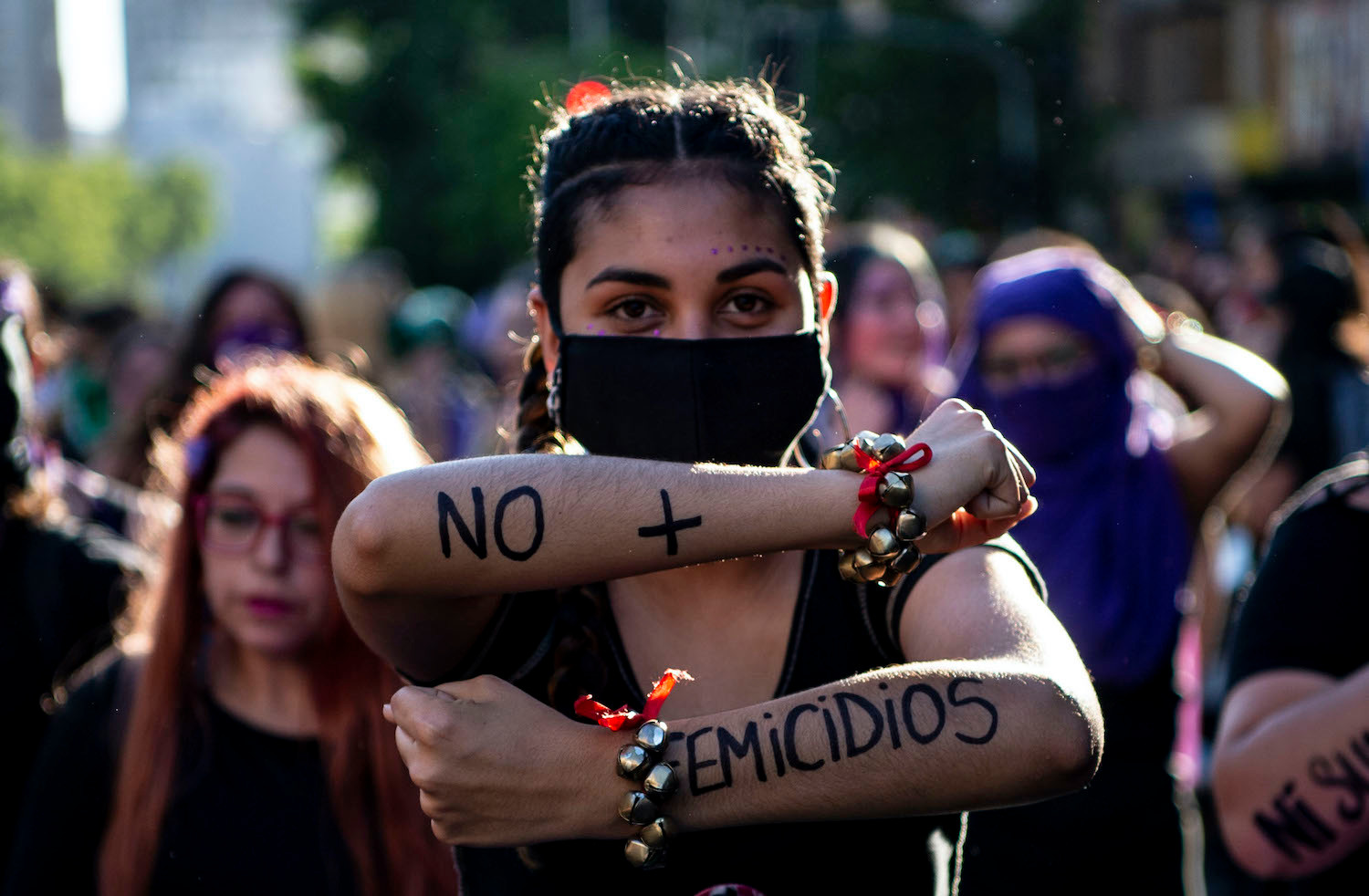![]() Why Chile’s New Constitution Is a Feminist Victory
Why Chile’s New Constitution Is a Feminist Victory
Far from the festive celebrations, Karina Nohales spent Christmas Day protesting in the heat of the Santiago summer, furiously decrying violence against women. “No estamos todas…” (We’re not all here), she shouted through her protective facemask in one of several feminist rallies organized after a string of unrelated killings of women occurred over Christmas week.
The three killings brought an already formidable year to a tragic end. A total of 43 alleged femicides took place in 2020, with an additional estimated 151 cases of attempted femicide—the latter being the highest figure recorded since annual femicide records began.
“We march in different parts of the country, not only to denounce violence, but also the disinterest from the state,” says Nohales, highlighting the government’s 2021 budget, which includes only $1.7 million dedicated to preventing violence against women—an amount that is no higher than the year before despite a spike in domestic violence cases tied to ongoing pandemic lockdowns.
Nohales, an employment lawyer and spokeswoman for Chile’s largest feminist-advocacy group, Coordinadora 8M, now has a historic opportunity to fight for women at the highest levels in Chile. She is running as an independent candidate to be among the 155-strong assembly tasked with rewriting Chile’s Constitution. The October 2020 referendum in which Chileans voted for a new constitution also provided a chance to vote for a constitutional assembly-led drafting process, which would include a groundbreaking guaranteed gender-parity requirement. On the date of the vote, the parity option was favored by a resounding 79.18 percent of voters.
Read Full Article...

Hi, I'm Charis McGowan, a British-Caribbean writer based between London, UK, and Santiago, Chile.
I’ve been a regular news stringer in Chile for over eight years, contributing to outlets including The Guardian, Al Jazeera, the BBC, The Telegraph, and more. My work primarily focuses on human rights and social justice. Additionally, I am the former Music Editor-at-Large at gal-dem, where I wrote extensively about music and culture with a focus on Latin America and the Caribbean.
I’m open to commissions, collaborations, talks, and projects.
Please get in touch via the form.
Or email me at: charismcgowan at gmail.com
 Why Chile’s New Constitution Is a Feminist Victory
Why Chile’s New Constitution Is a Feminist Victory